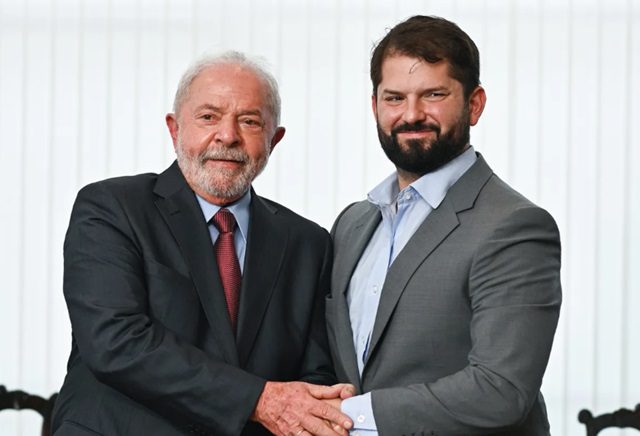BTN News: In a significant diplomatic move, Chilean President Gabriel Boric and Brazilian President Luiz Inácio Lula da Silva are set to meet in Santiago. They plan to discuss their strong and strategic bilateral agenda. This meeting shows how important cooperation is in commercial, political, and security matters. However, there are underlying tensions over regional and international issues, especially the controversial elections in Venezuela, which add complexity to these discussions.
The relationship between Chile and Brazil has always been important. It matters not only for their own national interests but also for the strategic landscape of the whole region. Rodrigo Espinoza, a political science expert at Universidad Diego Portales, said this event is very significant for Chile. “This is an important event for the Chilean state, not just because of its bilateral relations but also at a strategic regional level,” he said.
The recent elections in Venezuela have caused a lot of tension among left-leaning governments in the region. Chile’s stance was much more assertive, with a clear and strong clarification of the situation in Venezuela, creating noticeable tension. While the Venezuelan situation is not officially on the agenda and is missing from the draft of their joint declaration, it is expected to come up in their talks. Brazilian government spokespeople have indicated that it is “more than natural” for the two leaders to discuss regional matters.
The topic of Venezuela is indeed unavoidable, especially given Nicolás Maduro’s decision to withdraw diplomatic missions from several countries. These include Argentina, Costa Rica, Peru, Panama, the Dominican Republic, Uruguay, and Chile. This move came after these nations questioned the legitimacy of the Venezuelan presidential election results, which declared Maduro the winner. The withdrawal of these missions and the expulsion of representatives from these countries highlight the deepening regional divide.
Furthermore, past multilateral meetings have shown some distance between Lula and Boric, especially on issues like the war in Ukraine. Boric has adopted a stronger tone that aligns more with Western perspectives, while Brazil has taken positions closer to the BRICS group. This difference in international stances adds more complexity to the dynamics between the two leaders.
Lula’s agenda in Chile includes not only meetings with Boric but also engagements with key figures in the Chilean political and judicial systems. These include meetings with Ricardo Blanco, President of the Supreme Court, José García Ruminot, President of the Senate, and Karol Cariola, President of the Chamber of Deputies. These meetings show the multifaceted nature of the bilateral relationship.
On the commercial front, Lula and Boric will participate in the closing of the Chile-Brazil Business Forum. This event is organized by the Society for Industrial Development (Sofofa) and the Brazilian Embassy in Chile. This forum provides a platform for improving trade relations and exploring new areas for cooperation. Additionally, a Space Cooperation Agreement will be signed at the Aeronautical Museum of the Chilean Air Force in Cerrillos the following day. In total, around 20 cooperation agreements will be signed, covering security, health, commerce, culture, science, and tourism.
Brazil, with its 213 million inhabitants, is Chile’s main commercial partner in the region. Brazil accounts for 4.5% of Chile’s exports worldwide and 30% of its exports to Latin America as of 2020. Chile is Brazil’s largest supplier of copper cathodes, salmon, bottled wine, methanol, and iodine, among other products. Conversely, Chile is a significant destination for Brazilian exports, including boneless beef, vehicle bodies, and iron or steel products.
This visit marks a continuation of efforts to strengthen Chile-Brazil relations. This comes after Boric attended Lula’s inauguration in December 2022. This event was seen as a step towards reactivating relations after a period of clear distancing during the last term of Jair Bolsonaro’s administration.
The upcoming bilateral meeting promises to be a fluid and significant event. It reflects the deep commercial ties and the complex political landscape that both nations navigate. In May 2023, Boric returned to Brasília for a regional integration summit. This summit was attended by leaders from Argentina, Bolivia, Colombia, Ecuador, Guyana, Paraguay, Suriname, Uruguay, and Venezuela. This further emphasizes the regional importance of these diplomatic engagements.
The Brazilian President is expected to arrive in Santiago with a large delegation. This includes 14 ministers and various authorities, representatives, and business leaders. The meeting signifies strong engagement aimed at fostering closer ties and addressing mutual concerns.


